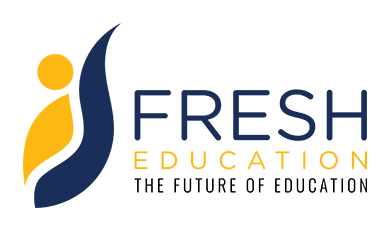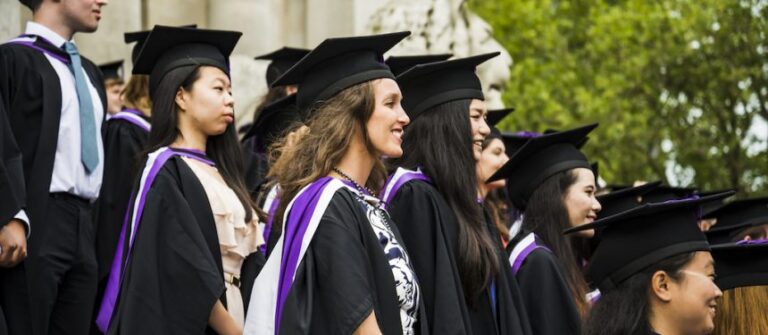The Future of
Education
#FRESH Korea
Chase Your Dream, Study Anywhere.
Start Now!
VIRTUAL CONCIERGE
Given today's technology, There is no need for you to visit us at our office while we can be there for you 24/7/365. Speak to us today
SELECT YOUR COURSE HERE
Your next study destination could be in Australia, USA, England Canada or Anywhere
HOW FRESH EDUCATION CAN ASSIST YOU ?
It’s time to get ready for your life-changing international education experience
Advantages of Pursuing
A high-quality and progressive educational system
The Australian Government pays great attention to education and invest a lot of money in university research. The lecturers are leading experts who are experienced. You can completely develop yourself in a multicultural environment while studying in Australia.
Enhance knowledge, develop skills, and enrich life experiences
When studying in Australia also means that you are widening your eyes. You will have the opportunity to interact with many people, learn many new cultures and learn a lot of knowledge in the university.
Appealing and advantageous career prospects
In the international labor market, holding an Australia degree will bring you a very good advantage. International graduates will have more job opportunities than domestic ones.

WELCOME TO FRESH EDUCATION
Welcome to the University of Sydney – Campus Tour
Currently, studying in Australia is the need of many international students who have completed high school education. Australia has many top universities with innovative education. However, many young people still don’t know how the processes of visa application and enrollment are, what benefits of study abroad are.
A bridge to your dreams
University of Melbourne Tour
Australia is one of the top choices for international students who want to study in an English-speaking country. According to statistics from the Australian Department of Education in 2019, there were more than 9 million international students enrolled. Therefore, if you study in the country of kangaroos, you will have the opportunity to meet and interact with many friends from all over the world.
WHAT'S HAPPENING

Indians exempt from Aus student visa changes
What Fresh Education students say
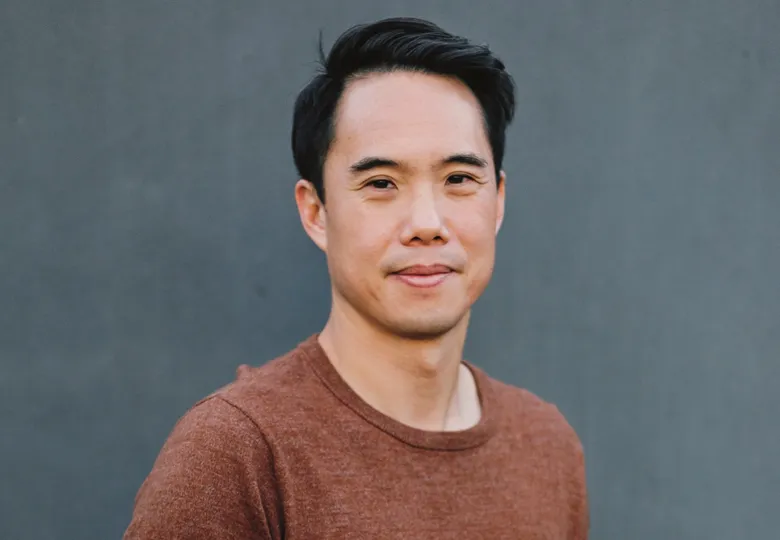

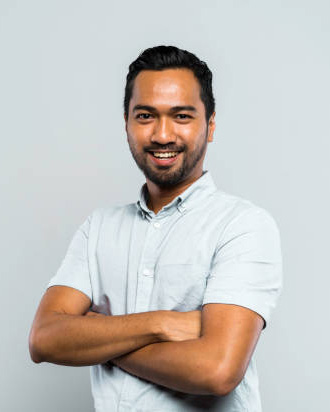
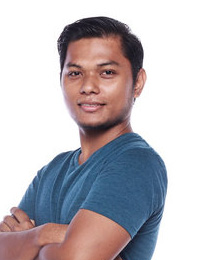


Which city is the right fit for you?
Which university aligns with your needs?
At every stage of your study abroad journey, FRESH Education will be there to support you.

Seoul National University
Established as the first national university of Korea in 1946, Seoul National University (SNU) has educated unique individuals with exceptional competencies and visions. SNU has played a vital part in Korea’s unprecedented industrialization and democratization, earning it a reputation as the “university of and for the people.”

Yonsei University
Yonsei University has persevered through the waves of modern Korean history, leading the country’s industrialization, democratization, and informatization eras. Now, Yonsei will pioneer into the Fourth Industrial Revolution to face new challenges and lead innovation in higher education.

Sungkyunkwan University
Sungkyunkwan University is a national university with 625 years of glorious history and shining tradition and is a representative symbol of a leading university which leads the new era. At the same time, the university has led the development of higher education in Korea by challenging and innovating with a mind for sharing and coexistence.

Korea University
Korea University was established as the first private university in Korea under the ideal of “National Salvation through Education” to protect national sovereignty. With “Liberty, Justice, and Truth” as its motto, the university has been committed to fostering intellectuals and serving as the symbol of critical intellectuals throughout Korea’s industrialization and democratization.

Hanyang University
Hanyang University is a private research university in South Korea. The main campus is in Seoul, and the second one, the Education Research Industry Cluster at Ansan, or ERICA campus, is located in Ansan.

Kyung Hee University
Since its founding, Kyung Hee University has pursued the Kyung Hee Spirit of "Scholarship and Peace" as well as the founding principle of "creating a civilized world." For the past 62 years, the University has developed remarkably, contributing to the fulfillment of a "cultural world for humanity" as the leader of the future of academics and the creator of common values for humanity.

Chung-Ang University
Chung-Ang University is a private institution with 30,000 students and 982 faculty members. It consists of 10 undergraduate colleges and 16 graduate schools. It operates two campuses, in Seoul and Anseong, Korea.

Ewha Womans University
The objective of Ewha Haktang is to provide early childhood, primary, secondary, and higher education based on Christian values while following the fundamental educational ethos of the Republic of Korea.

Konkuk University
In May 1946, Konkuk University was established as Chosun School of Politics (조선정치학관), a junior college for future political leaders, by Dr. Yoo Seok-chang.

Sejong University
Since our beginning in 1940 as the Kyung Sung Humanities Institute, founded on the educational ideals 'Love, Christianity, Teaching of the People' as well as our school motto 'Creativity, Action, Virtue, Service', we held our first commencement ceremony as Sejong University in 1979 and established our place as a true prestigious private institution.

Sogang University
Sogang University was established by the Society of Jesus to provide an education based on Catholic beliefs and inspired by the Jesuit philosophy of education, in conformity with the Korean tradition of education.

Dongguk University
Dongguk University Los Angeles (DULA) seeks an inclusive and innovative leader with excellent interpersonal skills, strong business acumen, and a commitment to student success to serve as its next president.

Catholic University of Korea
The Catholic University of Korea traces its roots to the introduction of Catholicism in Korea. Catholicism was first introduced to Korea in the latter half of the 18th century when Silhak(Practical Learning) scholars of the late Joseon dynasty began to study the new religion from Catholic books.

Kookmin University
Kookmin University was established in 1946 as Korea's first private university after winning the independence from Japan in 1945. The founders of KMU, key members of the Provisional Government of the Republic of Korea including Shin Ik-hee, envisioned fostering individuals who would lead liberated and democratic Korea.

Hankuk University of Foreign Studies
Hankuk University of Foreign Studies was founded in 1954 to produce talented individuals who could further Korea’s modernization and the cause of world peace. Based on genuine understanding and profound love for the Korean people and humankind, HUFS’ enterprising spirit has helped Korea establish a major presence in the world, overcoming national adversity from the Korean War.

Hongik University
Hongik University was founded in the first year after Korean independence, and has contributed to making Korea what it is today through educating creative and practical-minded professionals highly needed by society.

University of Seoul
For more than 100 years since its establishment in 1918, the University of Seoul has faithfully performed its mission to explore truth and to serve society through creative research. As a result, the University of Seoul is recognized as a well-taught university and is evaluated as a small but strong university that conducts influential and substantial research.

Sookmyung Women's University
Realizing the imperative need for a learning institution for women created by the Korean people themselves, the Royal Family of King Go-Jong of the Joseon Dynasty founded Sookmyung on the vast grounds of Yong-Dong Palace in 1906.

Kwangwoon University
Kwangwoon's ultimate purpose is to promote self-reliance in students.Self-reliance comes from diligence, frugality and a strong will to explore and to act upon oneself. Kwangwoon is aimed at educating students to become leaders who strive to cultivate their characters through tireless exploration, practice and pursuit of humanistic purpose and values.

Seoul National University
Established as the first national university of Korea in 1946, Seoul National University (SNU) has educated unique individuals with exceptional competencies and visions. SNU has played a vital part in Korea’s unprecedented industrialization and democratization, earning it a reputation as the “university of and for the people.”

Yonsei University
Yonsei University has persevered through the waves of modern Korean history, leading the country’s industrialization, democratization, and informatization eras. Now, Yonsei will pioneer into the Fourth Industrial Revolution to face new challenges and lead innovation in higher education.

Sungkyunkwan University
Sungkyunkwan University is a national university with 625 years of glorious history and shining tradition and is a representative symbol of a leading university which leads the new era. At the same time, the university has led the development of higher education in Korea by challenging and innovating with a mind for sharing and coexistence.

Korea University
Korea University was established as the first private university in Korea under the ideal of “National Salvation through Education” to protect national sovereignty. With “Liberty, Justice, and Truth” as its motto, the university has been committed to fostering intellectuals and serving as the symbol of critical intellectuals throughout Korea’s industrialization and democratization.

Hanyang University
Hanyang University is a private research university in South Korea. The main campus is in Seoul, and the second one, the Education Research Industry Cluster at Ansan, or ERICA campus, is located in Ansan.

Kyung Hee University
Since its founding, Kyung Hee University has pursued the Kyung Hee Spirit of "Scholarship and Peace" as well as the founding principle of "creating a civilized world." For the past 62 years, the University has developed remarkably, contributing to the fulfillment of a "cultural world for humanity" as the leader of the future of academics and the creator of common values for humanity.

Chung-Ang University
Chung-Ang University is a private institution with 30,000 students and 982 faculty members. It consists of 10 undergraduate colleges and 16 graduate schools. It operates two campuses, in Seoul and Anseong, Korea.

Ewha Womans University
The objective of Ewha Haktang is to provide early childhood, primary, secondary, and higher education based on Christian values while following the fundamental educational ethos of the Republic of Korea.

Konkuk University
In May 1946, Konkuk University was established as Chosun School of Politics (조선정치학관), a junior college for future political leaders, by Dr. Yoo Seok-chang.

Sejong University
Since our beginning in 1940 as the Kyung Sung Humanities Institute, founded on the educational ideals 'Love, Christianity, Teaching of the People' as well as our school motto 'Creativity, Action, Virtue, Service', we held our first commencement ceremony as Sejong University in 1979 and established our place as a true prestigious private institution.

Sogang University
Sogang University was established by the Society of Jesus to provide an education based on Catholic beliefs and inspired by the Jesuit philosophy of education, in conformity with the Korean tradition of education.

Dongguk University
Dongguk University Los Angeles (DULA) seeks an inclusive and innovative leader with excellent interpersonal skills, strong business acumen, and a commitment to student success to serve as its next president.

Catholic University of Korea
The Catholic University of Korea traces its roots to the introduction of Catholicism in Korea. Catholicism was first introduced to Korea in the latter half of the 18th century when Silhak(Practical Learning) scholars of the late Joseon dynasty began to study the new religion from Catholic books.

Kookmin University
Kookmin University was established in 1946 as Korea's first private university after winning the independence from Japan in 1945. The founders of KMU, key members of the Provisional Government of the Republic of Korea including Shin Ik-hee, envisioned fostering individuals who would lead liberated and democratic Korea.

Hankuk University of Foreign Studies
Hankuk University of Foreign Studies was founded in 1954 to produce talented individuals who could further Korea’s modernization and the cause of world peace. Based on genuine understanding and profound love for the Korean people and humankind, HUFS’ enterprising spirit has helped Korea establish a major presence in the world, overcoming national adversity from the Korean War.

Hongik University
Hongik University was founded in the first year after Korean independence, and has contributed to making Korea what it is today through educating creative and practical-minded professionals highly needed by society.

University of Seoul
For more than 100 years since its establishment in 1918, the University of Seoul has faithfully performed its mission to explore truth and to serve society through creative research. As a result, the University of Seoul is recognized as a well-taught university and is evaluated as a small but strong university that conducts influential and substantial research.

Sookmyung Women's University
Realizing the imperative need for a learning institution for women created by the Korean people themselves, the Royal Family of King Go-Jong of the Joseon Dynasty founded Sookmyung on the vast grounds of Yong-Dong Palace in 1906.

Kwangwoon University
Kwangwoon's ultimate purpose is to promote self-reliance in students.Self-reliance comes from diligence, frugality and a strong will to explore and to act upon oneself. Kwangwoon is aimed at educating students to become leaders who strive to cultivate their characters through tireless exploration, practice and pursuit of humanistic purpose and values.
Discover how we can become your key to success.
FRESH Education offers flexible engagement models, allowing us to provide tailor-made education solutions that consistently surpass our students' expectations.
Embrace your academic journey abroad with the unwavering support of FRESH Education, your companion at every pivotal step.

The relationship between Hong Kong and Australia is multi-faceted, but education is without doubt one of our most valuable and enduring bonds.
Australia offers a very high standard of education with a wide range of choices, which makes us a highly popular study destination for international students.
Thousands of students from Hong Kong choose to study in Australia each year because of our internationally recognised qualifications, highly qualified lecturers and course options, competitive living and tuition costs, and multicultural study environment. Add a great lifestyle and a welcoming environment and Hong Kong students feel very much at home.

Overseas students planning to study in Australia must have a passport and obtain an Australian student visa. The conditions on which a visa is granted may vary from country to country. Information about student visa requirements are available from the Australian Department of Home Affairs website.
If you wish to proceed with your application, you must complete the Written Agreement sent with the letter of offer, and forward the fees quoted in the letter of offer.
The Australian Government requires all overseas students studying in Australia to take out Overseas Student Health Cover (OSHC). Overseas students will be required to provide confirmation that they have undertaken OSHC to cover the period of their ACPE studies.

You must contact the Admissions Office at the college as soon as possible to confirm your arrival and your Australian address details. We will arrange a time for you to meet with the Overseas Student counsellor.
We will keep you informed regarding Orientation and Registration days for your course.
Use of Personal Information
Please be aware that we may disclose personal information to Australian Commonwealth and state agencies, and the Fund Manager of the ESOS Assurance Fund, pursuant to our obligations under the ESOS Act 2000 and the National Code.
Australia’s world-class education encourages innovative, creative and independent thinking. We have a strong international reputation for excellence in university teaching and research. Graduates from Australia are very successful in finding jobs and hold prominent positions worldwide.

Australia also provides international students with world best-practice quality and tuition assurance systems, backed by national legislation that is supported by the Australian and all state and territory governments.
Lorem ipsum dolor sit amet, consectetur adipisicing elit. Optio, neque qui velit. Magni dolorum quidem ipsam eligendi, totam, facilis laudantium cum accusamus ullam voluptatibus commodi numquam, error, est. Ea, consequatur.
The Australian Government is firmly committed to supporting the quality and integrity of Australia’s international education sector and maintaining our international reputation as a provider of high quality education at every level.

Australian universities, colleges and schools are committed to equipping you with practical skills and knowledge to help you succeed in your chosen industry. As global demand booms for entrepreneurial and innovative thinkers, Australian education providers have re-engineered their approaches to teaching and learning to inspire thought-leading creativity among students in every discipline.

Australian universities, colleges and schools will teach you the practical skills and theoretical knowledge to help you succeed in a fast-changing world and remain agile in uncertain times.
